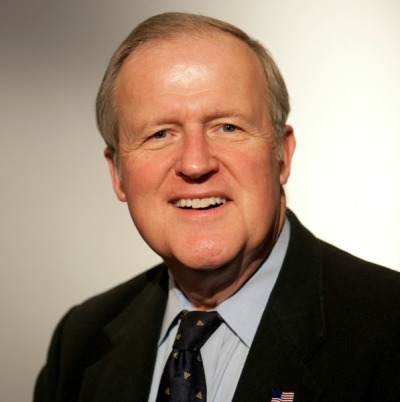Did George Washington Violate the Constitution?

The Old State House in Annapolis has just re-opened its historic Senate Chamber to public view. After a seven-year project of historic restoration, the Chamber now features a life-size statue of Gen. George Washington. Tourists and state lawmakers alike can see how they "measure up" to the Father of our Country.
This is an appropriate time to consider the crucial events of our nation's Founding. The principles upheld by the Founders are coming under withering attack in our schools and in the media.
Columnist George Will describes himself as "an amiable atheist." But a new crop of unbelievers is no longer content to remain so amiable. Instead, they have become atheizers. They militantly demand that the public square be cleansed of all evidence of Americans' religious belief and practice. They are telling us, in effect, to cover up what George Washington believed, what he said, and what he did.
In California's Tulare County, for example, local atheizers protested a prayer breakfast. Sheriff Mike Boudreaux's was the target of caustic criticism because he appeared in the same venue as Tony Perkins, president of the Family Research Council. Those who oppose FRC (function(w,q){w[q]=w[q]||[];w[q].push(["_mgc.load"])})(window,"_mgq"); Washington noted the justice of the American cause. He pointed to the power of the Union of the States. And he declared "the patronage of Heaven." In closing, Washington, too, was unashamed to weep. He offered this plea. I consider it an indispensable duty to close this last solemn act of my Official life, by commending the Interests of our dearest Country to the protection of Almighty God, and those who have the superintendence of them, to his holy keeping. What was this elevated eighteenth century language but a prayer? It was a prayer of petition delivered by General Washington in public, while in uniform, and before the Members of Congress. What was Washington's statement except a paraphrase of "In God We Trust"? Now, Americans are being told that for any of us to say and do what George Washington said and did is not permissible. Why? Is it unconstitutional? George Washington returned from retirement to serve as President of the Constitutional Convention in 1787. He was our President under that Constitution when the Bill of Rights was added in 1791. You can now see Washington's personally annotated copy of the Constitution at Mount Vernon. Is it impolite? George Washington was the man who memorized the Rules for Civility as a young man. No one ever complained of his being rude. Is it politically incorrect? Ah, that's it. That's what we are seeing in our day. Those atheizers and other professional carpers, critics, and embittered backbiters are forever deeming the ideals and ideas of Americans as politically incorrect. We need to know our country's story so we can rebut their importunate demands. We are the Americans for whom Washington and those patriot leaders of 232 years ago sacrificed so much. How do we know this? They said so. Washington often spoke of fighting for the liberties of "millions yet unborn." So should we.





















